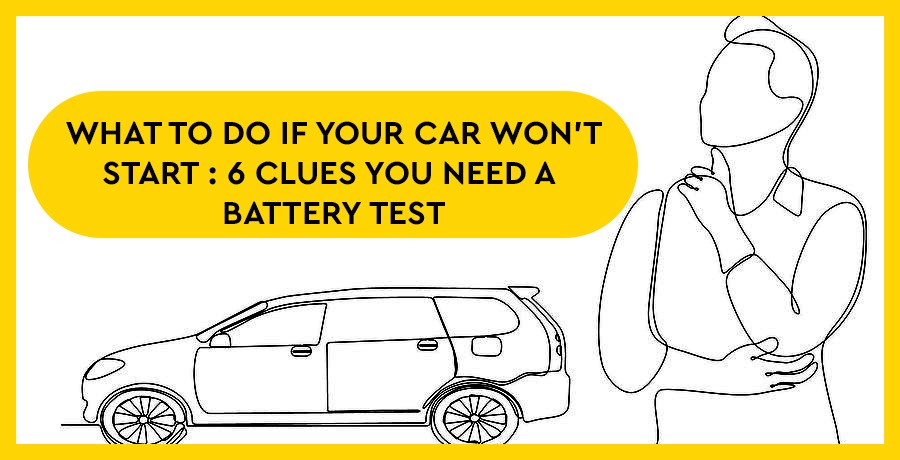Introduction
There's nothing quite as frustrating as turning the key in your car's ignition, only to be met with silence. A non-starting car can quickly disrupt your plans and leave you feeling stranded. While there can be various reasons behind a car's failure to start, a common culprit is a weak or dead battery.
In this article, we'll explore six clues that indicate you need a battery test and what steps to take when your car won't start.
Dimming Headlights and Interior Lights
One of the first signs of a struggling battery is dimming headlights and interior lights. When you attempt to start the car, you might notice that the lights appear significantly dimmer than usual. This dimming indicates that the battery may not have enough power to turn the engine over, signalling the need for a battery test.
Slow Cranking Sounds
If your car's engine cranks slowly or turns over sluggish when you try to start it, it's a clear indication of a weakened battery. The cranking sound may also be accompanied by a clicking noise, which usually points to insufficient power to engage the starter motor. This is a strong hint that your battery might be on its last legs.
Frequent Jump-Starts
If you find yourself needing jump-starts more often than not, it's a sign that your battery is struggling to hold a charge. While occasional jump-starts might be necessary due to external factors, such as leaving lights on, frequent jump-starts are indicative of an underlying battery issue that requires attention.
Electrical System Malfunctions
A failing battery can lead to various electrical glitches in your car. You might experience issues with power windows, erratic dashboard lights, or unresponsive infotainment systems. These anomalies could be a result of insufficient voltage supplied by the battery, highlighting the need for a battery test.
Unusual Odor
If you detect a strong, sulphurous odour resembling rotten eggs when attempting to start your car, it could be a sign of a battery leak or corrosion. Battery leaks can lead to a compromised electrical connection, hindering the battery's performance. If you notice this smell, it's crucial to have your battery inspected promptly.
Old Age of the Battery
Car batteries have a finite lifespan, typically ranging from three to five years. If your battery is nearing or surpassing this range, it's wise to consider its age when troubleshooting a non-starting car. Even if you haven't experienced any noticeable issues, an older battery could still be the cause of your car's refusal to start.
Steps to Take When Your Car Won't Start:
- Check for Visible Corrosion: Inspect the battery terminals for corrosion. If present, clean the terminals using a mixture of baking soda and water.
- Jump-Start: If you have jumper cables and another vehicle, you can attempt a jump-start. If the car starts, it's an indication of a weak battery.
- Seek Professional Help: If the jump-start doesn't work or the problem persists, it's time to consult a professional mechanic. They can perform a comprehensive battery test and diagnose any other potential issues.
Conclusion
A non-starting car can be a source of frustration, but understanding the clues that suggest a battery issue can help you take the appropriate steps. If you encounter dimming lights, slow cranking sounds, frequent jump-starts, electrical malfunctions, unusual odors, or an old battery, it's time to consider a battery test. Regular battery maintenance and prompt action can save you from unexpected breakdowns and keep you on the road with confidence.






